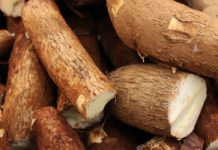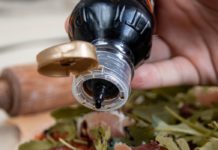Are Oily Foods Healthy?
Even the most health-conscious people sometimes find themselves giving in to cravings and may even overeat certain foods like French fries, pizzas, and burgers. These foods are packed with saturated fats and trans fats that may cause weight gain, increase cholesterol levels and blood pressure, and even increase the risk of heart disease and type-2 diabetes. This is why it is unhealthy to overindulge in fried or junk foods. Have you consumed excessive amounts of oily foods? Don`t panic, as there`s a way around it. But before discussing the solutions to consuming too many oily foods, let`s talk about the side effects of consuming them.
6 Side Effects of Consuming Excess Oily Foods
The crispy fries, juicy cheeseburger, and other greasy foods you consume affect your health negatively, especially when you have too much of them. Let`s see how.
They Affect the Gut Bacteria
The gut bacteria, also called the microbiome, suffer when you consume excessive amounts of greasy foods. This is not healthy for hormones and the body`s immunity.
Risk of Acne
Acne is largely as a result of hormonal and bacterial imbalances, and oily foods are a major cause of such imbalances. People who consume too many oily foods are at risk of acne.
Risk of Diabetes and Heart Disease
 People who eat fried foods about four to six times weekly are at risk of type-2 diabetes and coronary heart disease, especially if there are underlying health factors.
People who eat fried foods about four to six times weekly are at risk of type-2 diabetes and coronary heart disease, especially if there are underlying health factors.
Risk of Gallstones
If you consume too much oily food, your liver will have difficulty cleaning out all of the fat, and they will build up in your liver and gall bladder, putting you at risk of gallstones.
Strain on the Digestive System
The excessive volume of fat from these foods put a lot of pressure on the digestive system. Fat gets digested slowly and requires digestive juices enzymes such as stomach acid and bile to break it down. Already, stress and certain medications lower the levels of these digestive juices, and some people still consume a lot of fat when they are deficient in the digestive juices. This overworks the digestive system over time and leads to nausea, and bloating.
Frequent Visits to the bathroom
A number of people suffer diarrhea and stomach pain after eating a lot of greasy food. Everyone knows how unpleasant this can be. Sometimes, this is because the food never gets properly digested.
Now you know how unhealthy oily foods can be when you eat too much of them. Let`s discuss remedies to this condition.
7 Ways to Recover from Excessive Intake of Oily Foods
Take a Walk
Taking a 30-minute walk after a heavy meal does a whole lot in aiding digestion, and eventually preventing unhealthy weight gain. Think you`ve had a little more oily food than necessary? Go on that walk already!
Drink Lukewarm Water
Having some lukewarm water after consuming oily foods soothes the digestive system. The water breaks down the nutrients into their digestible form, and as a result, taking the burden off the small intestine.
Take Probiotics
Regular intake of probiotics ensures balanced digestive health and improves gut flora and immunity. You may have a cup of yogurt to strengthen your gut after consuming oily food.
Eat More Fruits and Vegetables
Fruits and vegetables provide vitamins, fiber, and minerals to enable your body carry out various processes. Oily foods are devoid of fiber and some other essential micronutrients; they`re also high in saturated and trans fats, putting you at risk of constipation. Eat some fruits with seeds and nuts, or a bowl of salad and fresh vegetables whenever you consume oily foods. This way, you can be sure to keep constipation away.
Have a Detox Drink
Detox drinks flush out toxins that get accumulated in the body system after consuming oily foods. Such drinks also aid weight loss. If you have to consume oily foods, get some detox drink handly.
Plan your Meals
Usually, people eat junk foods because they are fast to make a buy around. If you plan your meals, you will not have to consume junk and oily foods often. As much as possible, don`t skip breakfast. Ensure you consume a healthy breakfast every morning to keep you charged for the day. You may add some whole grains and veggies to your diet, and drink enough water and juices all through the day. Remember that you only need to have a light dinner.
Get Adequate Sleep
 When you get enough sleep, you boost your mood and relax your body and mind. This will help you avoid emotional eating. That way, you can make healthy food choices and not have to deal with the consequences of excessive intake of oily foods.
When you get enough sleep, you boost your mood and relax your body and mind. This will help you avoid emotional eating. That way, you can make healthy food choices and not have to deal with the consequences of excessive intake of oily foods.
What you Should Not Do After Eating Oily Food
Avoid Eating Cold Foods
When you eat cold foods after consuming oily food, your liver, stomach, and intestines are endangered. Already, oily food is difficult to digest. Cold food makes digestion more difficult and may cause indigestion and bloating. This also suggests that you should avoid consuming cold foods after heavy meals.
Don`t Go to Bed Immediately After Eating
You are advised to give some time of 2-3 hours between dinner and bedtime. Sleeping immediately after a meal makes digestion difficult and causes bloating, alongside unhealthy weight gain.
Some Oily Food Facts
- October 25th is National Greasy Foods Day.
- Fried chicken is the most ordered meal in American restaurants.
- Studies show that consuming fatty acids activates regions of the brain that regulate emotions, and as a result, reducing feelings of sadness by about 50%.
- Saturated fat is an unhealthy fat that is naturally present in foods from animal sources, such as poultry with the skin on, fatty cuts of meat, higher fat milk, cheese, and yogurt.
- Saturated fat is also found in tropical oils such as palm kernel and coconut oils.
- Trans fat is an unhealthy fat made out of liquid oil that is converted into solid fat.
- Trans fat adds texture and flavor to food.
- Trans fat is usually found in commercially fried foods, baked goods, frozen foods, and processed foods like packaged salty snacks.
- There are small amounts of natural trans fat in meat, milk, and butter.
- The trans fat found naturally in foods is healthy, and does not increase the risk of heart disease like the one found in manufactured trans fat.
Some More Health Tips
- The bulk of your food consumption should contain fruits, vegetables, whole grains, and fat-free or low-fat milk products.
- Eat three meals a day: breakfast, lunch, and dinner.
- Wash uncooked foods like fruits or vegetables thoroughly washed before eating.
- Avoid eating raw or undercooked meats of any type.
- Avoid eating heavy meals in the summer months.
- Control portion sizes by eating the smallest portion that can satisfy hunger.
- Cooking foods above 165⁰F destroys most harmful bacteria and other pathogens.
Now that you Know…
It is healthy to practice mindful eating and portion control. Avoid oily foods altogether, but if you have to, follow the basic tips we just offered to stay fit and healthy. Have a cheat meal once a week to satisfy your cravings and have a balanced, wholesome meal for the rest of the days. Remember that what you eat determines how healthy you are.




